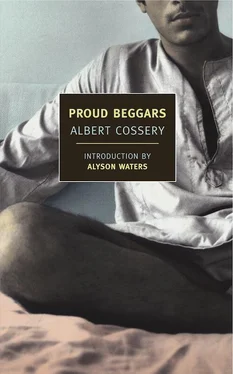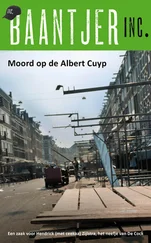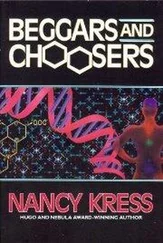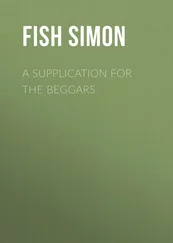“You’re not eating,” Nour El Dine finally said to break the silence.
That was the wrong thing to say. Young Samir quivered with disgust and glared at Nour El Dine with stinging contempt.
“You want me to eat that? Really, Inspector, what do you take me for?”
“Forgive me, my dear Samir. I said that without thinking. I beg you, don’t touch it.”
“I swear you’re doing it on purpose!”
“What?”
“Inviting me to such a disgusting place!”
“I’ve already explained it to you. I cannot permit myself to go places where I risk meeting acquaintances.”
“Why? Are you ashamed of me?”
“That’s not it, as you know very well. My dear Samir, please understand. It’s as painful for me as it is for you to stay here, but circumstances demand it.”
Samir broke into a sarcastic laugh.
“Circumstances! That’s what you call it — circumstances?”
“I beg you, calm down.”
Samir resumed his sullen expression and said nothing more. Nour El Dine’s basely conciliatory attitude filled him with disgust. He was an eighteen-year-old young man with fine, regular features not lacking a certain virile charm. He was bareheaded and wearing an open-collared shirt and a well-cut sports coat that denoted his bourgeois origins. He had none of the effeminate mannerisms that characterized most inverts; in fact, he wasn’t one at all. His relations with Nour El Dine had nothing to do with passion or lucre; they were based on a feeling of wild, irrevocable hatred. This hatred was not merely an antipathy for Nour El Dine’s person; what Samir especially hated in Nour El Dine were the principles of the conformist morality from which Samir had suffered so much in his family and of which the police inspector seemed to be the perfect incarnation. After his father, the procurator — that righteous murderer — Nour El Dine was the person he most hated. To have in his power such an active representative of this tribe of hypocrites, to see him unmasking himself and wallowing in the basest passion, gave Samir an almost sadistic pleasure. Thus, his meetings with Nour El Dine were only meant to allow him to deepen his hatred, to get to know its multiple ramifications.
Several months ago, unbeknownst to his family, he had quit the university, where he had been studying law, with the intention of studying life, not in books but in the daily practice of the streets.
Nour El Dine couldn’t understand why the young man agreed to see him. That was still a mystery to him. So far he hadn’t managed to sleep with him, or even to gain his confidence. The arguments he usually employed to pull off this kind of conquest had only succeeded in stimulating the young man’s scathing irony. Samir defended himself by making sarcastic remarks with remarkable intelligence and cunning. That was the difficulty with him: he was too intelligent. Sometimes Nour El Dine had the impression that Samir was openly making fun of him, and that he came to see him only with the intention of provoking him.
“I’m sorry,” Nour El dine said contritely. “I know this place isn’t worthy of you. But why don’t you want to come to my apartment? We could talk much more easily there.”
“Talk! What an obvious trap, Inspector. Do you take me for a child?”
“Really, my dear Samir, you insult me. What are you afraid of?”
“I’m not afraid of anything,” answered the young man, casting Nour El Dine a look filled with hatred. “But I will not come to your place.”
Nour El Dine grew pale under the shock of this hate-filled gaze. To be sure, he expected to contend with a certain aversion, even to suffer some wounds to his self-respect, but he never thought he would encounter such an exorbitant feeling as hatred in this distinguished young man. It was an obstacle he had not expected. Bewildered, he put his hand to his forehead like a man struck with a mortal pang. Nonetheless, he didn’t forget his critical situation. He continually kept glancing toward the door, fearing to see an acquaintance enter. This fear was stupid. None of his acquaintances would come to this sordid pastry shop. The two of them were quite alone, relegated to the borders of the world, escaping all gazes. Even the owner turned his back to them. He presided over the counter set up at the entrance to the shop, chasing away innumerable flies and vaunting the delights of his despicable merchandise to passersby. Most of his customers ate their pastry standing in the street; some of them took it away wrapped in a piece of newspaper. They were silent people, fallen into such decay that they seemed to be alive by a kind of miracle. Nour El Dine couldn’t quite believe in their reality. He closed his eyes, reopened them, contemplated the young man facing him, and sighed.
The pastries abandoned on the plates had attracted a swarm of flies. Samir tried vainly to chase them away; they whirled around, swooped down on his face, and nearly got into his eyes.
“These damned flies are going to kill me,” he said furiously. “Let’s get out of here.”
“I beg you. Stay just a moment.”
“What for?”
“Aren’t you happy to be in my company?”
Young Samir smiled ironically, driving the inspector to despair.
“Why, it’s a great honor and pleasure for me! However, there is something that breaks my heart.”
“What is that?”
“I would have liked for everyone to see us together so that I could brag.”
The sarcasm was so plain that Nour El Dine could find nothing to say. This aggressive spirit and these insolent ways filled him with terror, even though they were the source of his passion for the young man. He was accustomed to more submission on the part of his young friends, but then they were mostly cowardly beings without character. They only had their beauty; they were almost women. Samir was from another class. Never in the course of his numerous adventures with professional inverts had he met such a highly bred individual, such a proud spirit. It was the first time in his life that he felt a real attachment to someone. It was no longer a matter of a vulgar, sensual passion, fleeting and shameful, but of a meeting of two elite souls. This meeting had lifted him out of the horror of his work; it had made him glimpse spiritual joys that would have made his destiny bearable.
He was still astounded by Samir’s hateful look. This boy was too young to be able to hate so easily, or else it must have been for an exceptional reason. Nour El Dine was afraid to learn why. Could Samir be a revolutionary, one of these young men who dream only of crushing the government, and for whom the police represent all that is most hateful? That would explain his attitude. Nour El Dine contracted his jaw and held himself rigidly on his chair, as if the presence of an anarchist facing him suddenly reminded him of his judicial duties.
But this didn’t last long. Sweat soon appeared on his forehead, and his features expressed defeat and humiliation. He put out his hand to touch his companion’s arm, hesitated for a second, then let it drop to his side in a movement of extreme weariness.
Suddenly he realized he could no longer keep silent; he had to say something, to invent something, anything, to hold on to the young man.
“My dear Samir.”
“Yes.”
“I promise you that next time I’ll take you to a chic spot in the European quarter.”
“Really! The inspector is getting modern.”
“Only, my dear Samir, you’ll have to do me a favor.”
“What’s that?”
“Well, I would like to see you wearing a headdress. It’s not decent to go around bareheaded.”
“So that’s it! Let me tell you that I dress how I like. Besides, I don’t have a tarboosh.”
“Permit me to offer you one.”
Читать дальше












